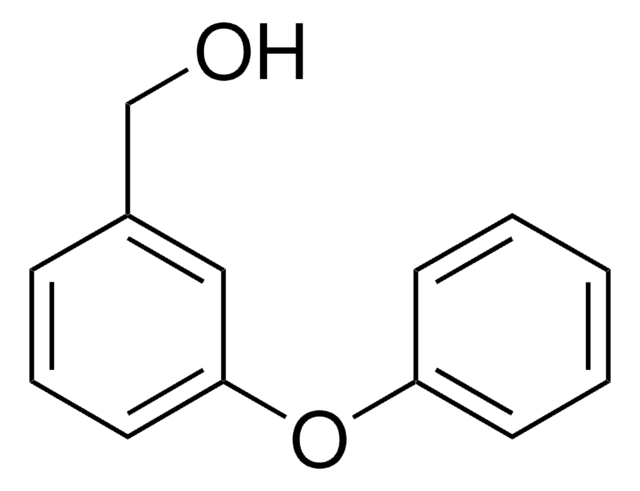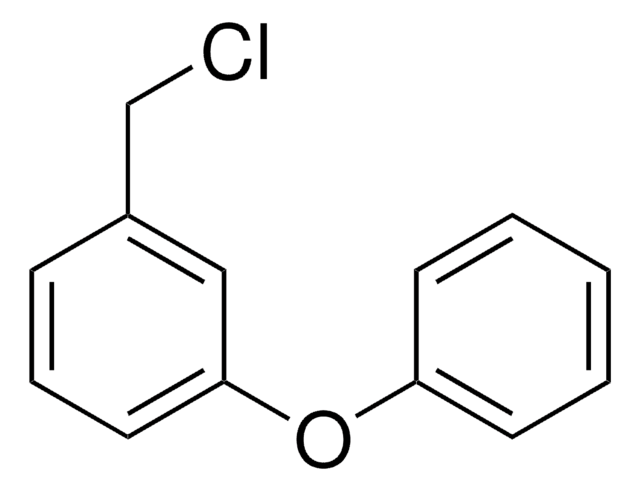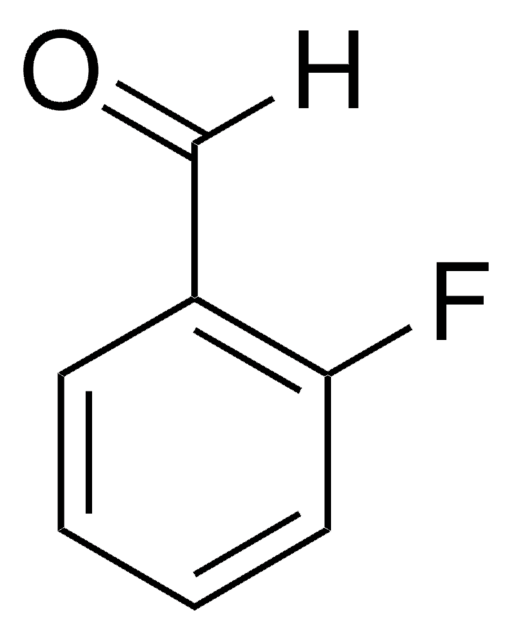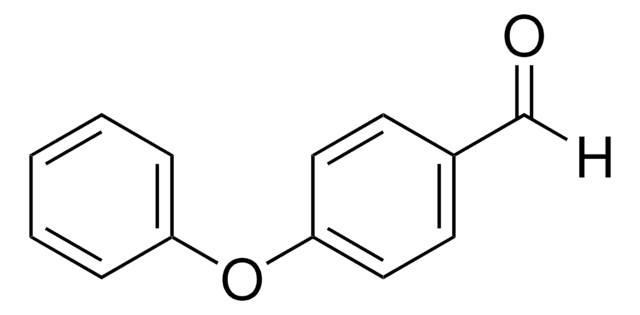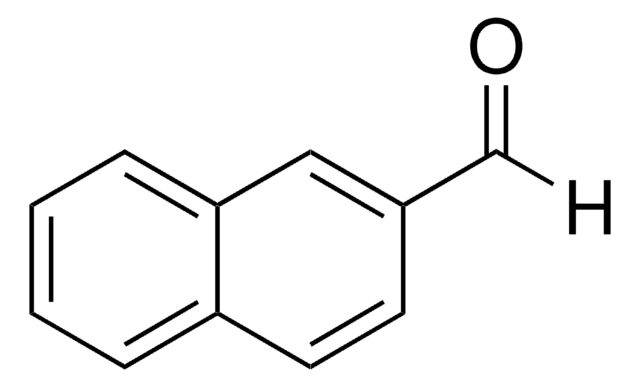191752
3-Phenoxybenzaldehyde
98%
Synonym(s):
3-Phenoxybenzaldehyde, 5-Phenoxybenzaldehyde, m-(Phenyloxy)benzaldehyde, m-Phenoxybenzaldehyde
About This Item
Recommended Products
Quality Level
Assay
98%
form
liquid
refractive index
n20/D 1.595 (lit.)
bp
169-169.5 °C/11 mmHg (lit.)
density
1.147 g/mL at 25 °C (lit.)
functional group
aldehyde
phenoxy
SMILES string
[H]C(=O)c1cccc(Oc2ccccc2)c1
InChI
1S/C13H10O2/c14-10-11-5-4-8-13(9-11)15-12-6-2-1-3-7-12/h1-10H
InChI key
MRLGCTNJRREZHZ-UHFFFAOYSA-N
Looking for similar products? Visit Product Comparison Guide
General description
Signal Word
Warning
Hazard Statements
Precautionary Statements
Hazard Classifications
Acute Tox. 4 Oral - Aquatic Acute 1 - Aquatic Chronic 1
Storage Class Code
6.1C - Combustible acute toxic Cat.3 / toxic compounds or compounds which causing chronic effects
WGK
WGK 3
Flash Point(F)
235.4 °F - closed cup - (External MSDS)
Flash Point(C)
113 °C - closed cup - (External MSDS)
Personal Protective Equipment
Choose from one of the most recent versions:
Certificates of Analysis (COA)
Don't see the Right Version?
If you require a particular version, you can look up a specific certificate by the Lot or Batch number.
Already Own This Product?
Find documentation for the products that you have recently purchased in the Document Library.
Customers Also Viewed
Our team of scientists has experience in all areas of research including Life Science, Material Science, Chemical Synthesis, Chromatography, Analytical and many others.
Contact Technical Service